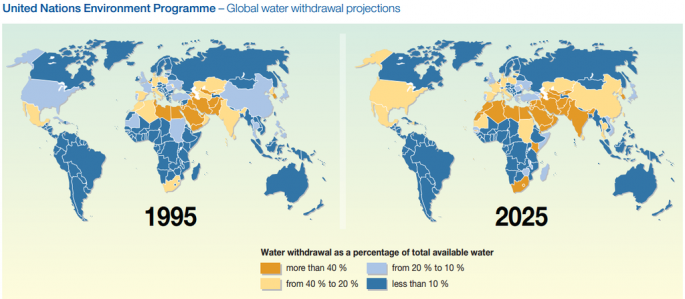China and other parts of Asia are likely to face a severe water crisis by 2050, a new study revealed.
In the study conducted by researchers at the Massachusetts Institute of Technology's Joint Program on the Science and Policy of Global Change, the team found out that several countries in Asia, notably China and India, are likely to enter a so-called "water-stressed phase" in the next few decades. The phase is defined to be the period where water consumption exceeds the available surface water supply.
The team made the conclusion by modeling several countries' water use trajectories and making predictions based on four major variables, such as economic expansion, population growth, natural climate changes, and human-generated carbon emissions, the Christian Science Monitor reported.
Based on the simulations, the scientists say that at least a billion people in the continent could face severe water shortage by 2050 if no mitigating efforts are made to combat the effects of rapid industrial development and population growth.
Adam Schlosser, a co-author of the study and deputy director of the MIT program, said that the findings highlight the big impact that human activity has on the world's water supply.
Schlosser also pointed out that different regions will have differing needs that could trigger water shortages. In the case of China, for instance, rapid industrialization will drive that need. On the other hand, a large part of India's increased demand will likely come from households as the country's population increases, CNBC reported.
He said, however, that all the different scenarios can eventually lead to unsustainable water use, which will result in shortages.
The researcher also said that the effects of the stress are similar to the ones that are being experienced today. However, these could be more extreme, such as droughts that can span several years or even faster rates at which surface water supplies are depleted.
Schlosser reiterated that the predictions they made still have certain uncertainties and that it is simply with the assumption that current water use trend continues. He also reminded the public that taking action will help prevent the predictions from happening.



























